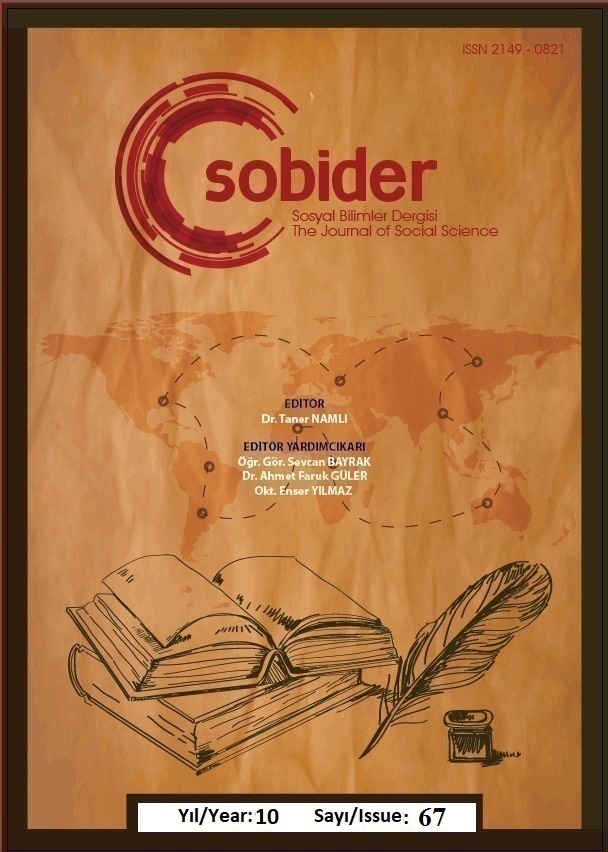Author :
Abstract
Bu araştırma, Türk Dili ve Edebiyatı dersindeki ölçme ve değerlendirme uygulamalarını inceleyen araştırmaların bir meta analizini sunmaktadır. Çalışma, özgün araştırmaların meta analiz yoluyla incelenerek, bu alandaki bilgilerin sentezini sunmayı amaçlamaktadır. Araştırmanın bulguları, Türk Dili ve Edebiyatı dersindeki ölçme ve değerlendirme uygulamalarının belirli yetersizliklere sahip olduğunu ortaya koymaktadır. Özellikle öğrencilere yöneltilen soruların büyük ölçüde bilgi seviyesinde olduğu ve üst düzey düşünme becerilerini hedefleyen soruların eksik olduğu görülmüştür. Ayrıca, uzaktan eğitim bağlamında ölçme-değerlendirme uygulamalarının güvenirliği ve öğrenci geri bildirimi almanın zorluklarına dikkat çekilmiştir. Sonuç olarak, bu makale Türk Dili ve Edebiyatı eğitimi alanında ölçme-değerlendirme uygulamalarının iyileştirilmesi gerekliliğini vurgulamaktadır. Araştırmanın sonuçları, bu alandaki daha fazla araştırmanın ve eğitim uygulamalarının geliştirilmesinin yolunu açabilir. Türk Dili ve Edebiyatı dersindeki ölçme-değerlendirme uygulamalarının öğrenci başarısını artırma ve öğretim kalitesini yükseltme potansiyeline sahip olduğu unutulmamalıdır. Bu çalışma, eğitimciler, araştırmacılar ve politika yapıcıları için önemli bir kaynak niteliği taşıyabilir.
Keywords
Abstract
This study presents a meta-analysis of research examining assessment and evaluation practices in Turkish Language and Literature courses. The study aims to synthesize the knowledge in this field by examining original research through meta-analysis. The findings of the study reveal that assessment and evaluation practices in Turkish Language and Literature courses have certain inadequacies. In particular, it was observed that the questions directed to the students were largely at the level of knowledge and the questions targeting higher level thinking skills were missing. In addition, the reliability of assessment practices and the difficulties of obtaining student feedback in the context of distance education were highlighted. In conclusion, this article emphasizes the need to improve assessment practices in the field of Turkish Language and Literature education. The results of the study can pave the way for further research and development of educational practices in this field. It should not be forgotten that assessment and evaluation practices in Turkish Language and Literature courses have the potential to increase student achievement and improve the quality of teaching. This study can be an important resource for educators, researchers and policy makers.
